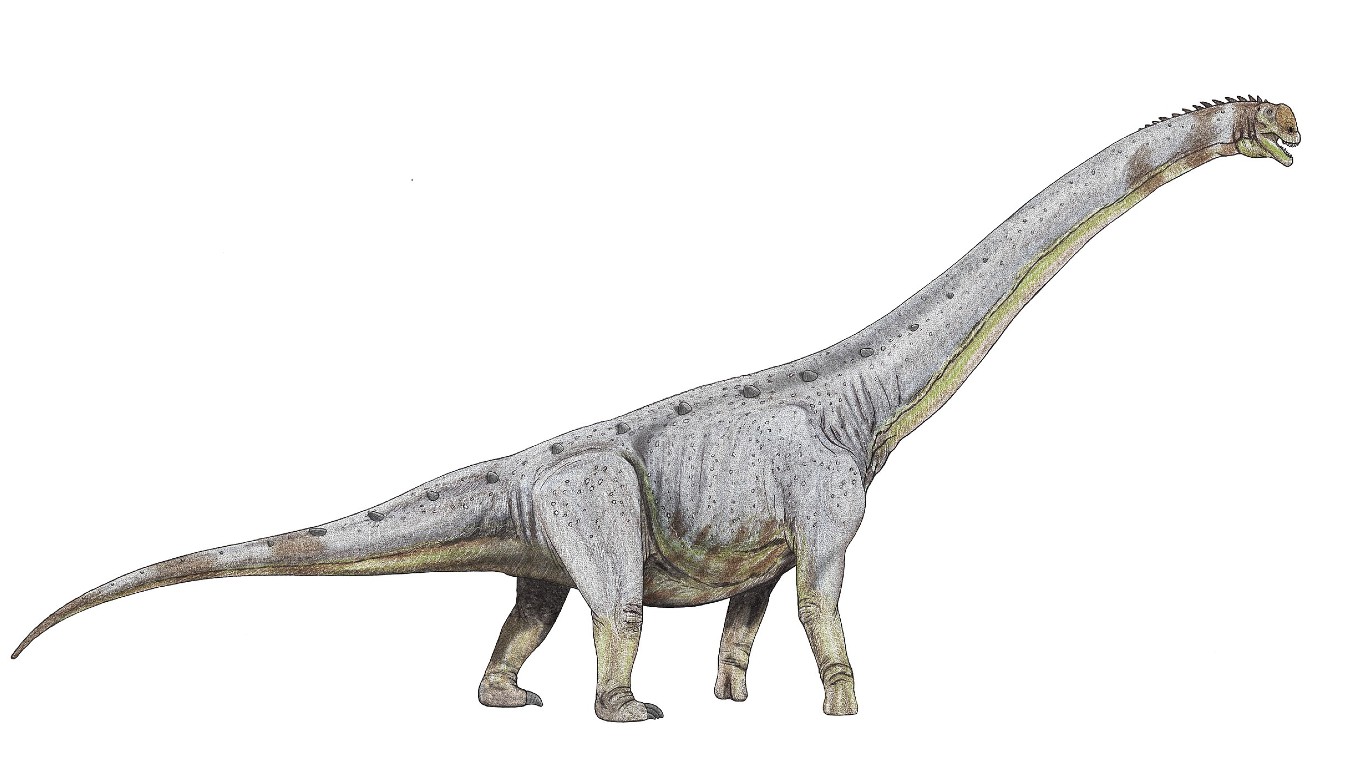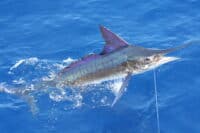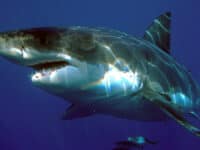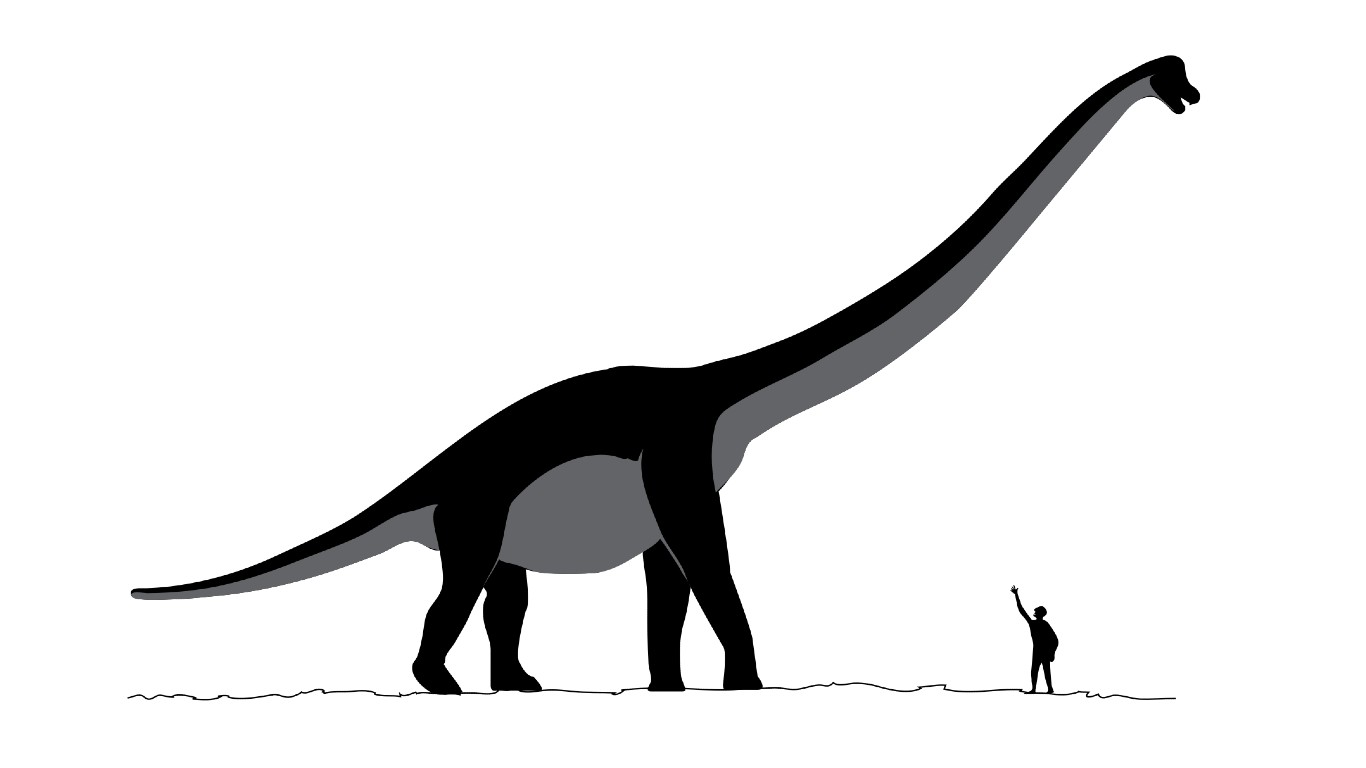
The Mesozoic Era, also known as the age of dinosaurs, lasted from 252 to 66 million years ago. It likely ended when an asteroid struck Earth, spewing minerals into the air that caused lasting winter conditions and prevented plant growth. Most animals died out due to lack of food. (These are 17 cataclysmic events that changed the earth forever.)
Paleontologists’ understanding of dinosaurs, including their size and types, has evolved over time as new fossils are frequently discovered. Each year the Smithsonian publishes a list of the top dinosaur finds. The current record holder for largest dinosaur is the Argentinosaurus found in Argentina in 2012.
There is debate over whether “largest” should be based on weight or length. The Argentinosaurus measures 131 feet long and weighs 110 tons, making it the largest by both metrics. (Today, this is the biggest animal in the world.)
This record may change again in the future. Humans have only been discovering dinosaurs since 1822, when British paleontologist Mary Ann Mantell first found fossilized bones. If humans are around as long as dinosaurs were, more large dinosaurs will likely be uncovered.
Click here to see the largest dinosaurs in history

15. Shingopana songwensis
> Length: 26 feet
> Weight: 5.5 tons
> Diet: Herbivorous
> Fossils found in: Tanzania
[in-text-ad]
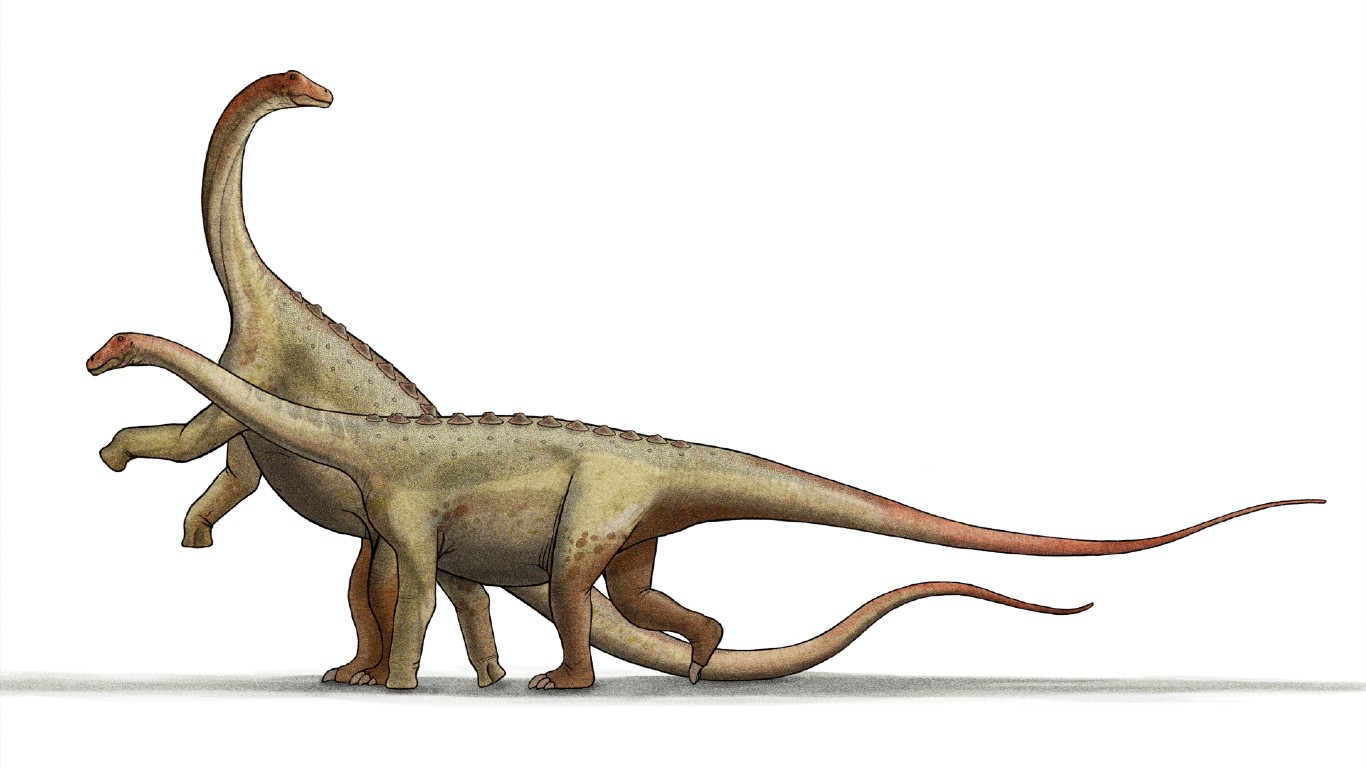
14. Saltasaurus
> Length: 42 feet
> Weight: 7.7-8 tons
> Diet: Herbivorous
> Fossils found in: Argentina
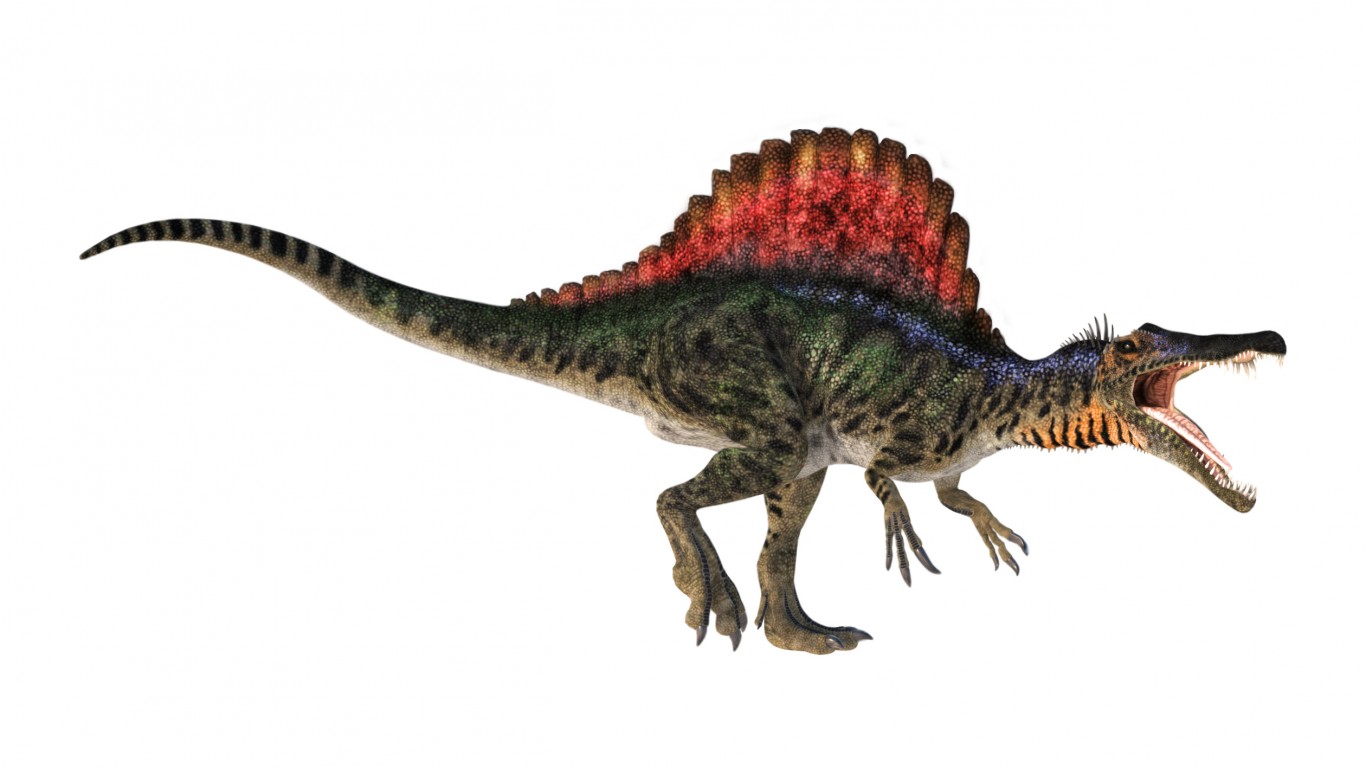
13. Spinosaurus
> Length: 41-59 feet
> Weight: 10 tons
> Diet: Carnivorous
> Fossils found in: Egypt
12. Rapetosaurus krausei
> Length: 49 feet
> Weight: 16 tons
> Diet: Herbivorous
> Fossils found in: Madagascar
[in-text-ad-2]
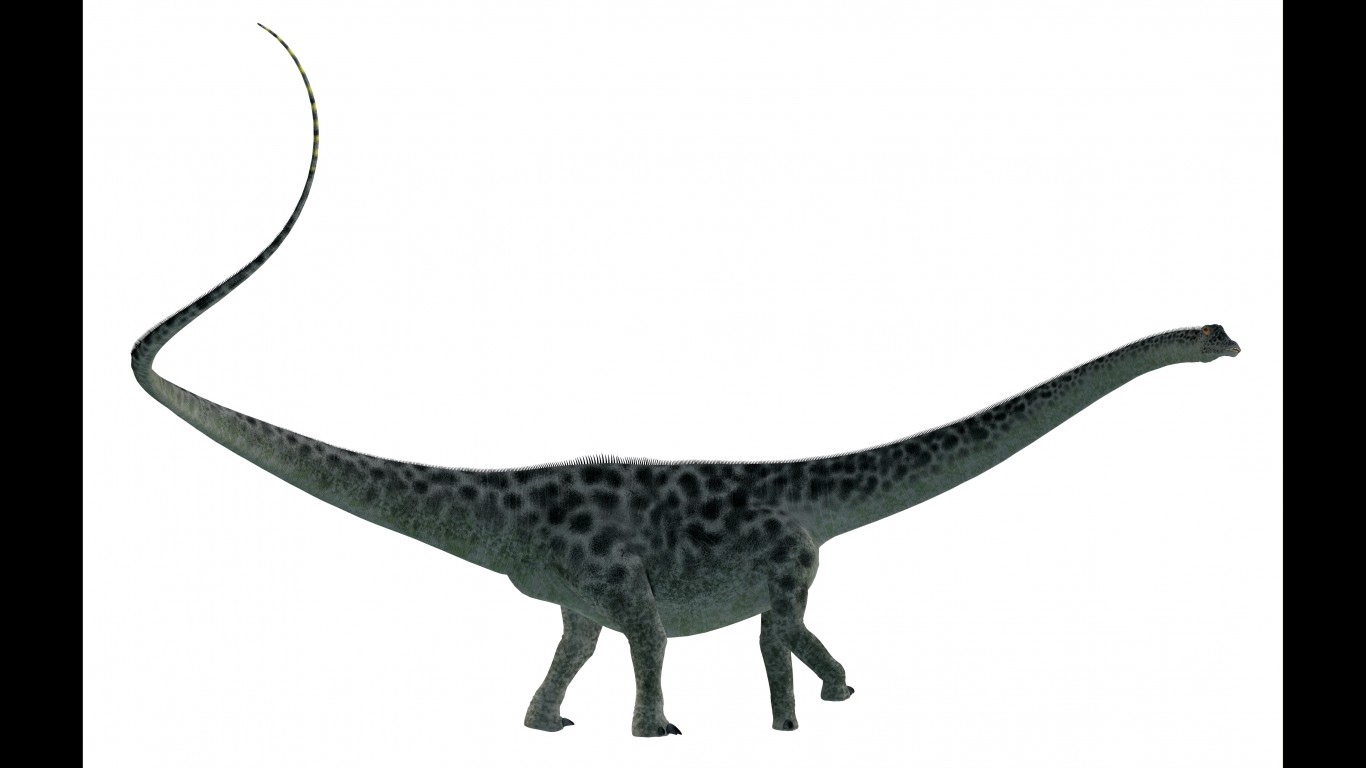
11. Diplodocus longus
> Length: 80 feet
> Weight: 16.3 tons
> Diet: Herbivorous
> Fossils found in: North America
10. Elaltitan lilloi
> Length: 59 feet
> Weight: 60 tons
> Diet: Herbivorous
> Fossils found in: Argentina
[in-text-ad]
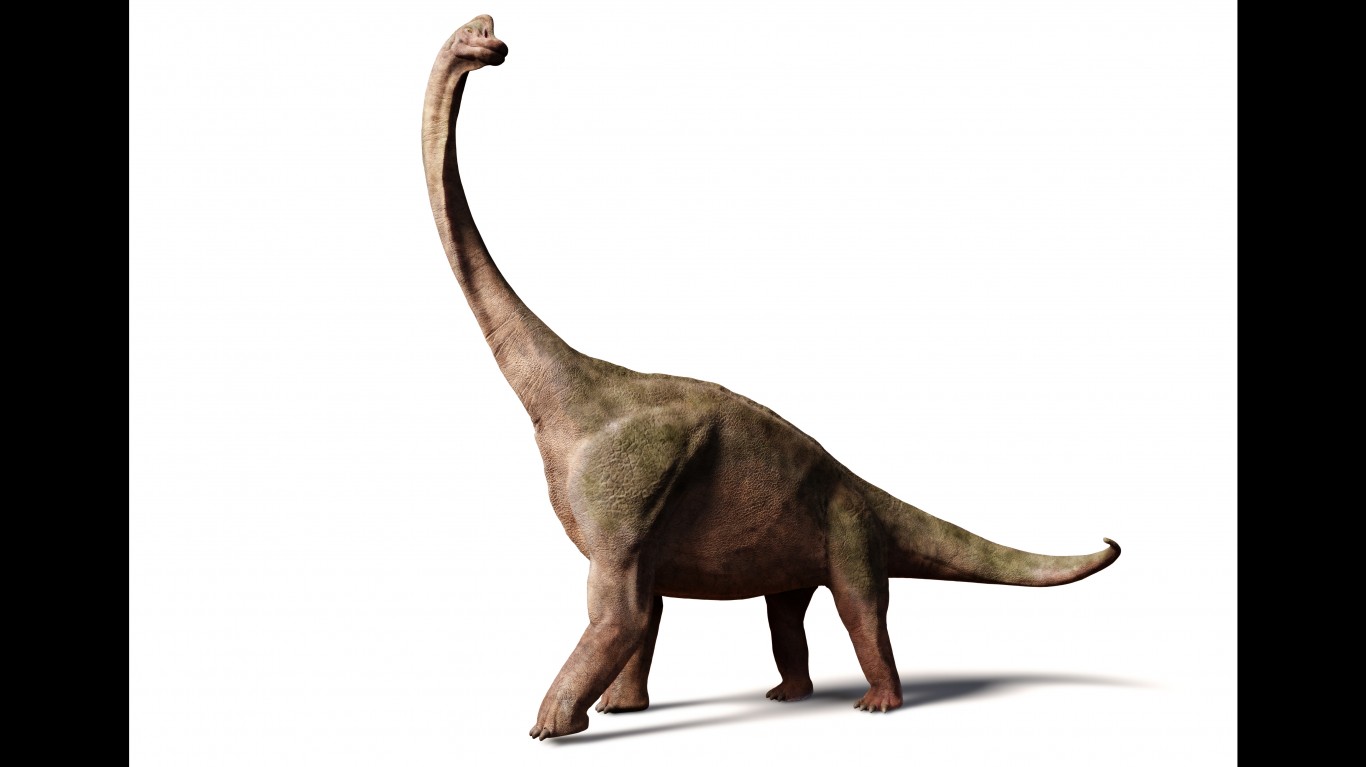
9. Brachiosaurus Altithorax
> Length: 59-69 feet
> Weight: 62 tons
> Diet: Herbivorous
> Fossils found in: North America
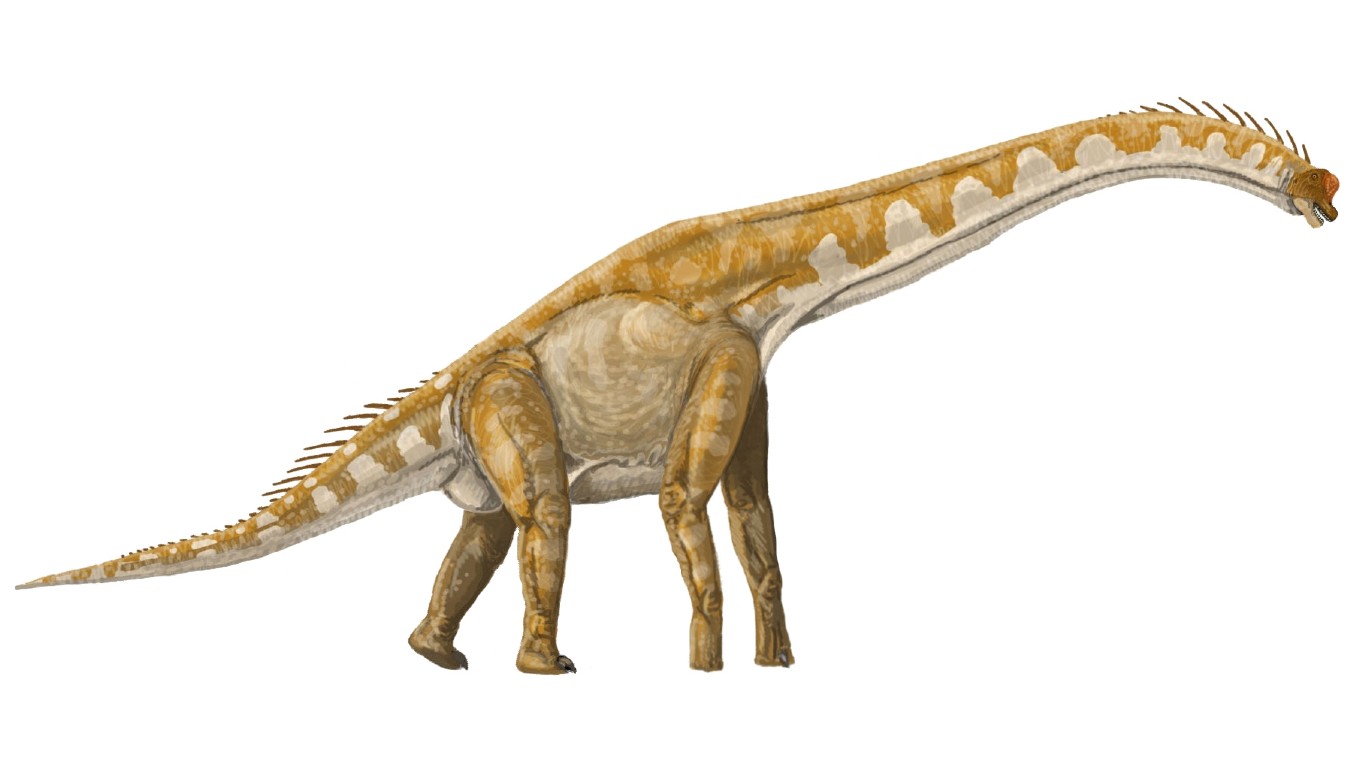
8. Giraffatitan brancai
> Length: 74 feet
> Weight: 37.5 tons
> Diet: Herbivorous
> Fossils found in: Tanzania

7. Austroposeidon magnificus
> Length: 82 feet
> Weight: 30-32 tons
> Diet: Herbivorous
> Fossils found in: Brazil
[in-text-ad-2]
6. Turiasaurus riodevensis
> Length: 118-128 feet
> Weight: 40-48 tons
> Diet: Herbivorous
> Fossils found in: Spain
5. Futalognkosaurus dukei
> Length: 102-112 feet
> Weight: 42-50 tons
> Diet: Herbivorous
> Fossils found in: Argentina
[in-text-ad]
4. Dreadnoughtus
> Length: 85 feet
> Weight: 65.4 tons
> Diet: Herbivorous
> Fossils found in: Argentina

3. Sauroposeidon proteles
> Length: 111 feet
> Weight: 55-66 tons
> Diet: Herbivorous
> Fossils found in: North America
2. Paralititan
> Length: 100 feet
> Weight: 83 tons
> Diet: Herbivorous
> Fossils found in: Egypt
[in-text-ad-2]
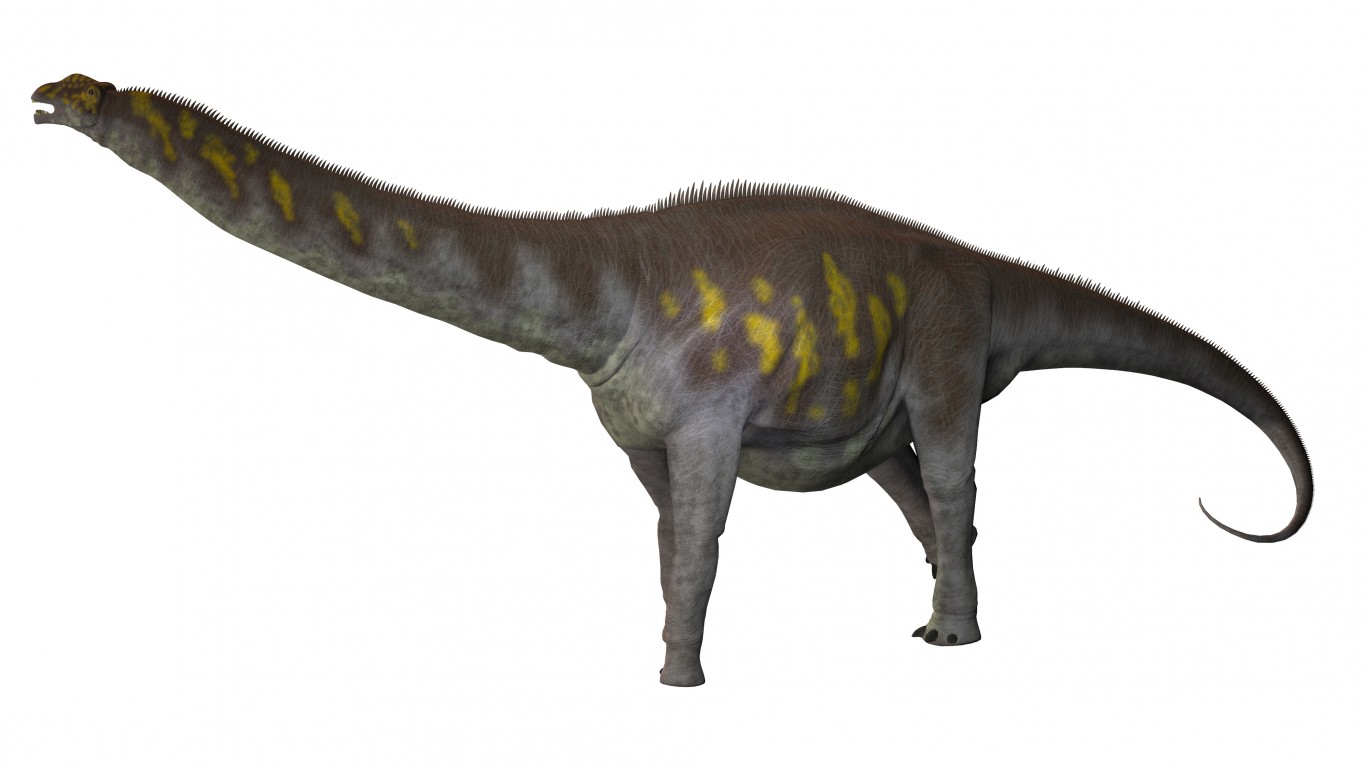
1. Argentinosaurus
> Length: 131 feet
> Weight: 110 tons
> Diet: Herbivorous
> Fossils found in: Argentina
Thank you for reading! Have some feedback for us?
Contact the 24/7 Wall St. editorial team.
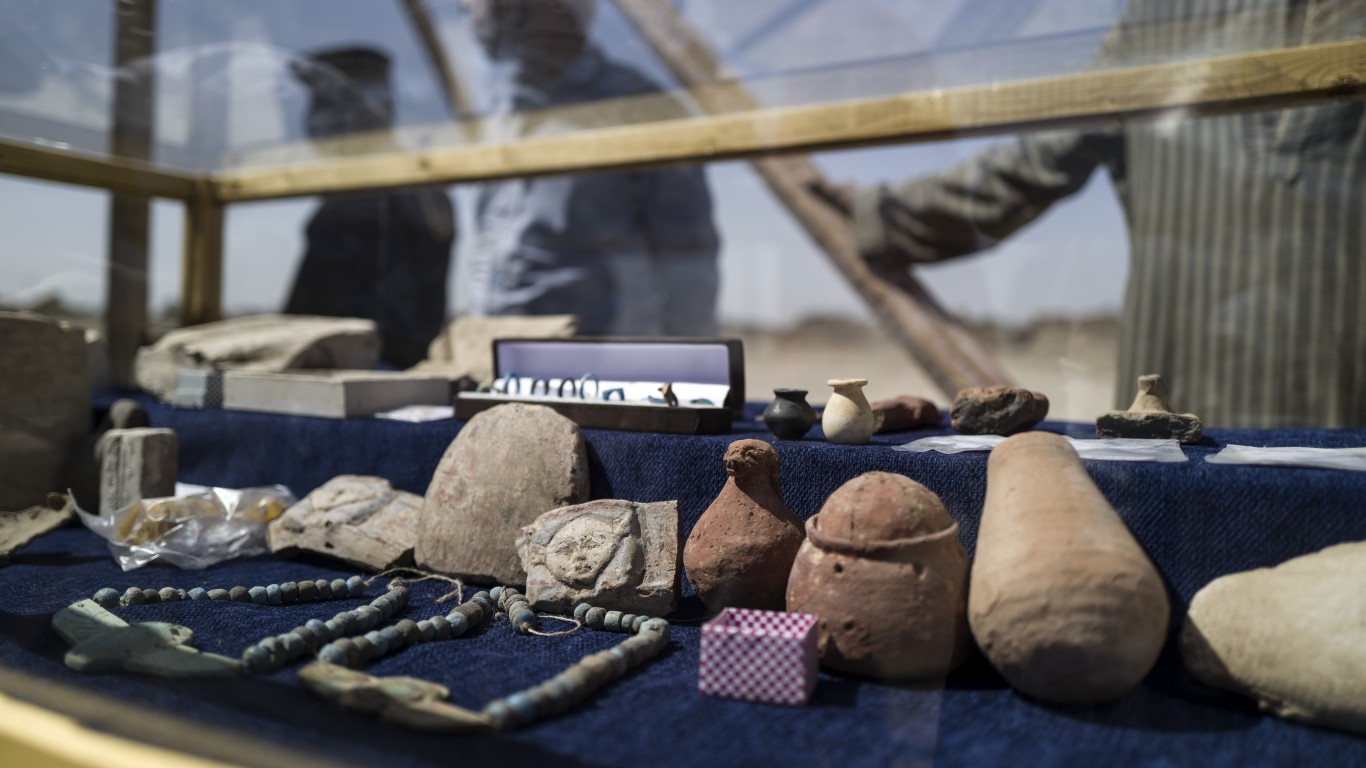 24/7 Wall St.
24/7 Wall St.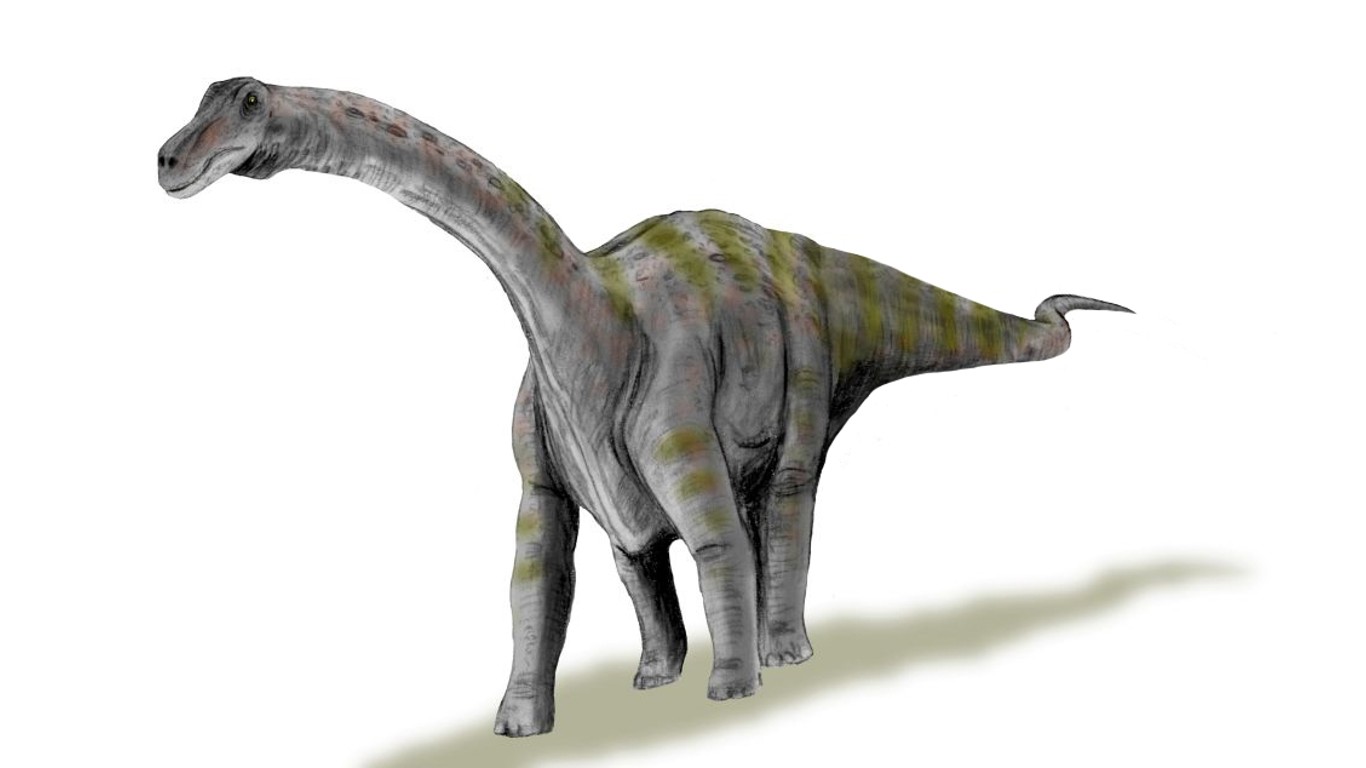
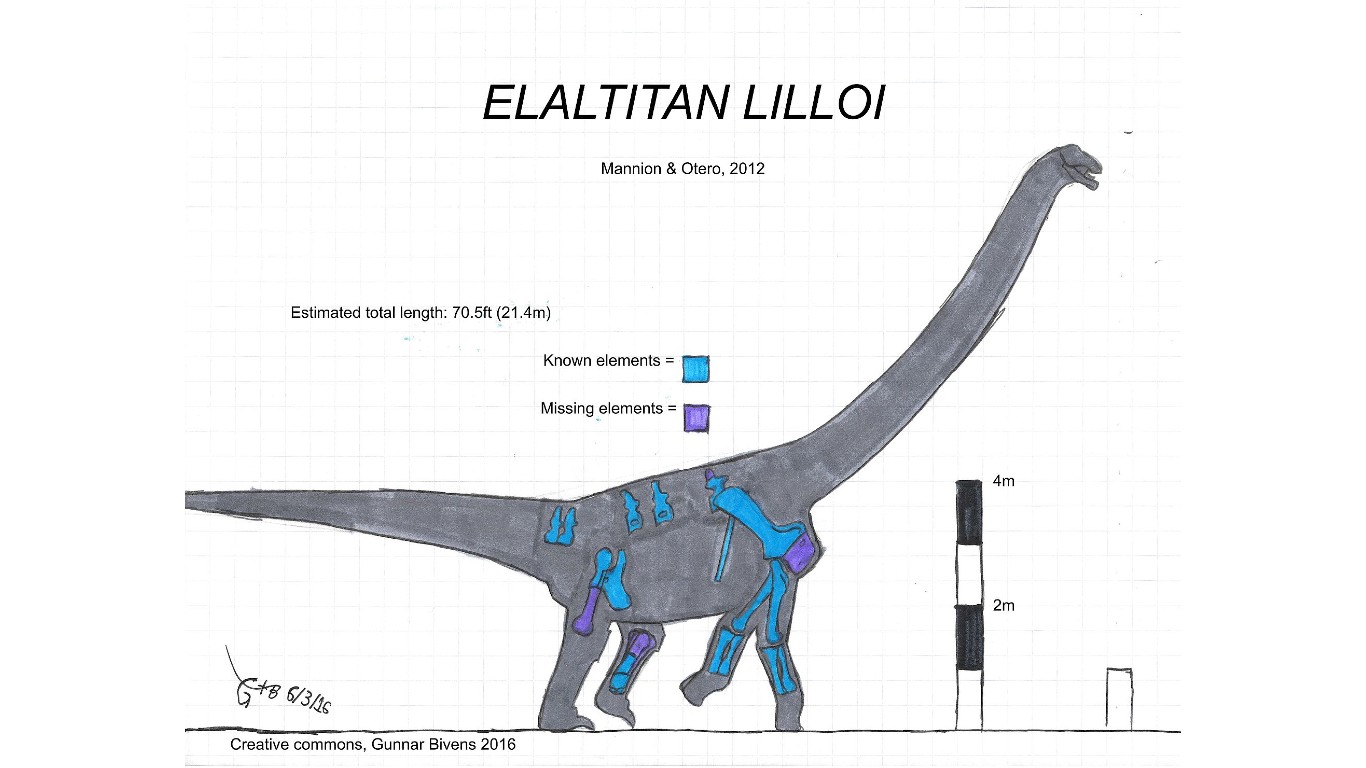
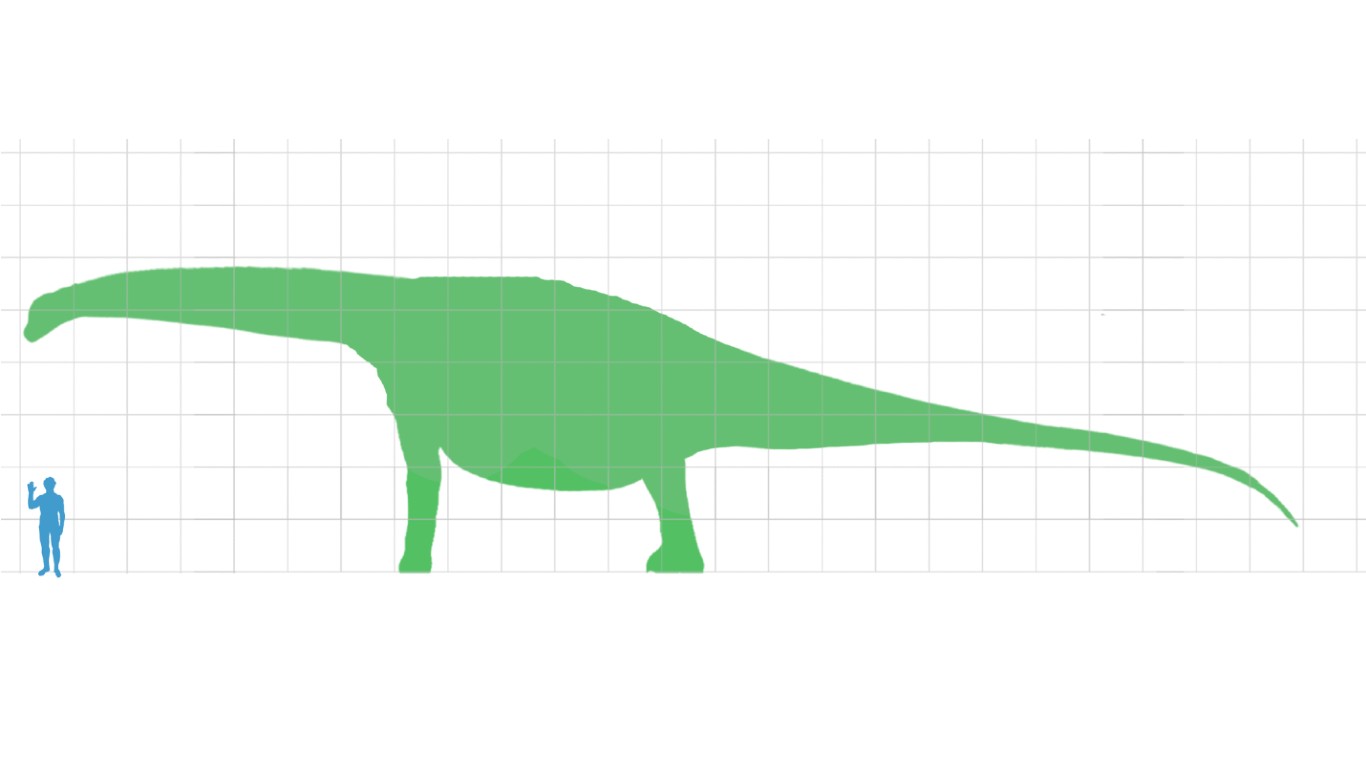
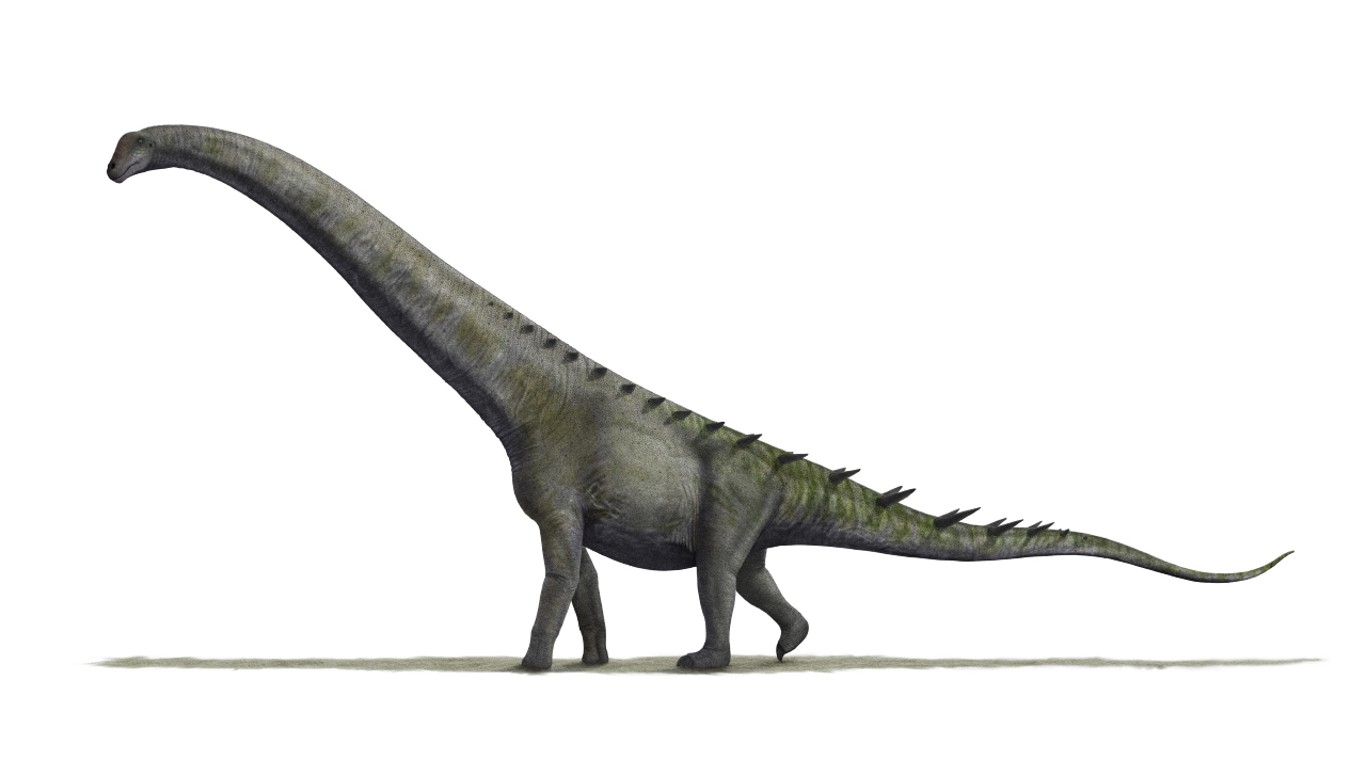
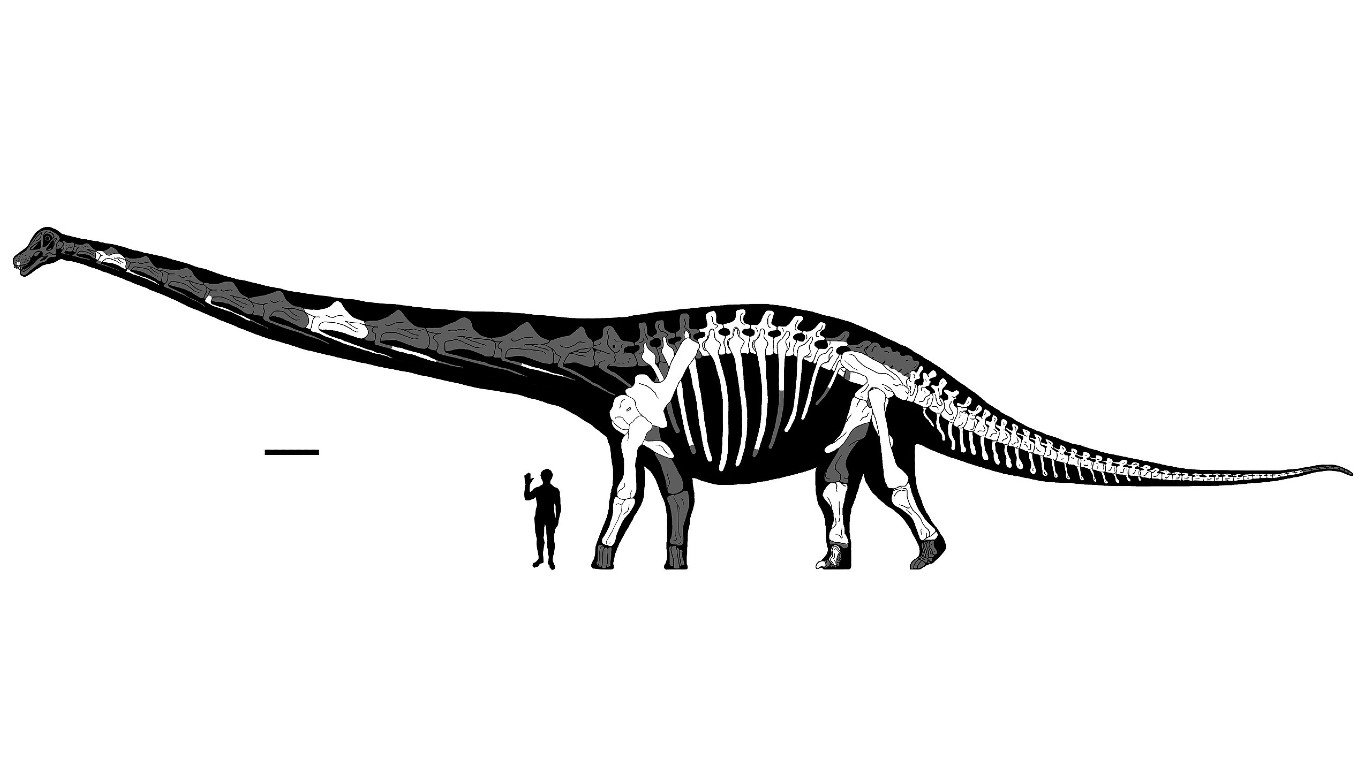
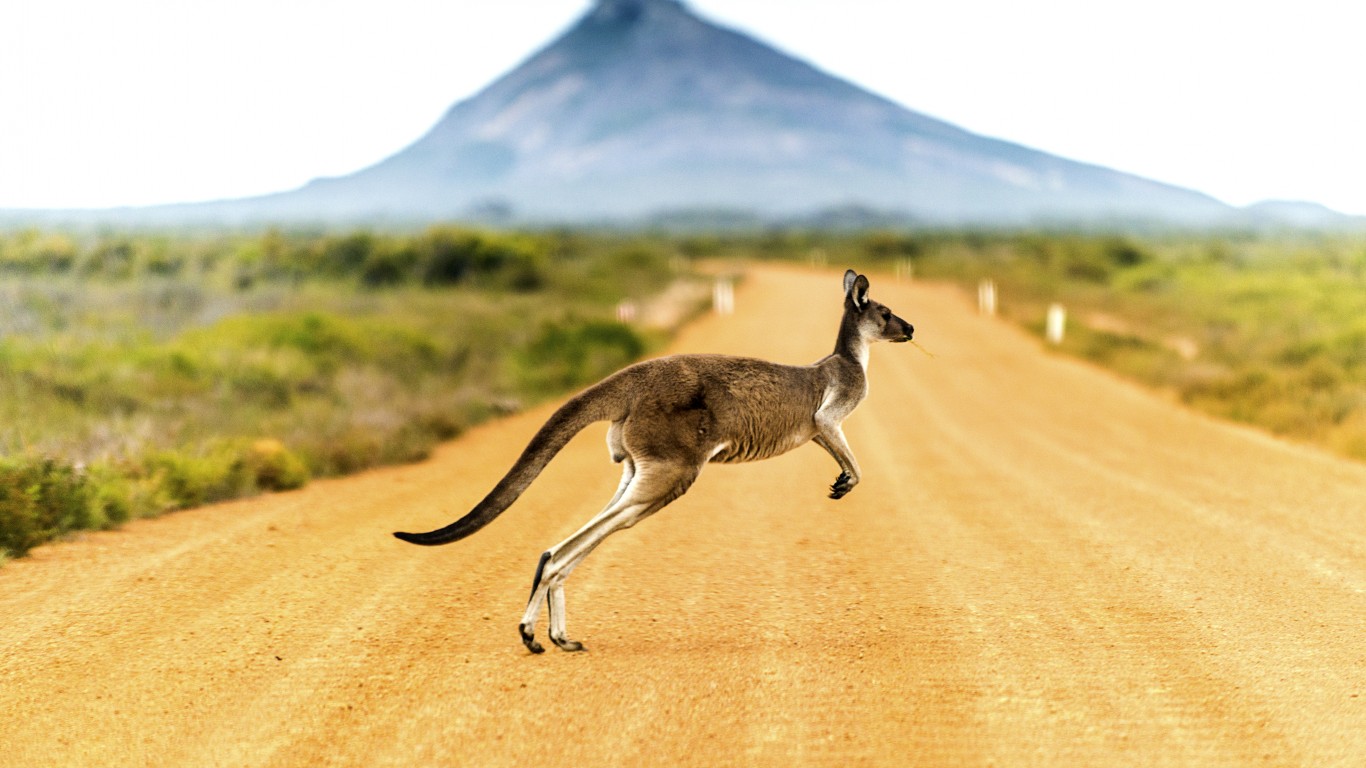 24/7 Wall St.
24/7 Wall St.